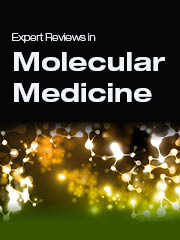Crossref Citations
This article has been cited by the following publications. This list is generated based on data provided by
Crossref.
Waddington, Simon N.
Kramer, M. Gabriela
Hernandez-Alcoceba, Ruben
Buckley, Suzanne M.K.
Themis, Michael
Coutelle, Charles
and
Prieto, Jesus
2005.
In Utero gene therapy: current challenges and perspectives.
Molecular Therapy,
Vol. 11,
Issue. 5,
p.
661.
Cacev, T.
Radosevic, S.
Krizanac, S.
and
Kapitanovic, S.
2008.
Influence of interleukin-8 and interleukin-10 on sporadic colon cancer development and progression.
Carcinogenesis,
Vol. 29,
Issue. 8,
p.
1572.
Silver, Jared N
and
Flotte, Terence R
2008.
Towards a rAAV-based gene therapy for ADA-SCID: from ADA deficiency to current and future treatment strategies.
Pharmacogenomics,
Vol. 9,
Issue. 7,
p.
947.
Belville, C.
Marechal, J.-D.
Pennetier, S.
Carmillo, P.
Masgrau, L.
Messika-Zeitoun, L.
Galey, J.
Machado, G.
Treton, D.
Gonzales, J.
Picard, J.-Y.
Josso, N.
Cate, R. L.
and
di Clemente, N.
2009.
Natural mutations of the anti-Mullerian hormone type II receptor found in persistent Mullerian duct syndrome affect ligand binding, signal transduction and cellular transport.
Human Molecular Genetics,
Vol. 18,
Issue. 16,
p.
3002.
Kang, Hyoung Jin
Shin, Hee Young
and
Ahn, Hyo Seop
2009.
Recent advance in primary immune deficiency disorders.
Korean Journal of Pediatrics,
Vol. 52,
Issue. 6,
p.
649.
Bazer, F. W.
Wu, G.
Spencer, T. E.
Johnson, G. A.
Burghardt, R. C.
and
Bayless, K.
2010.
Novel pathways for implantation and establishment and maintenance of pregnancy in mammals.
Molecular Human Reproduction,
Vol. 16,
Issue. 3,
p.
135.
Menzies, F. M.
Shepherd, M. C.
Nibbs, R. J.
and
Nelson, S. M.
2011.
The role of mast cells and their mediators in reproduction, pregnancy and labour.
Human Reproduction Update,
Vol. 17,
Issue. 3,
p.
383.
Singh, H.
Endo, Y.
and
Nie, G.
2011.
Decidual HtrA3 negatively regulates trophoblast invasion during human placentation.
Human Reproduction,
Vol. 26,
Issue. 4,
p.
748.
Seth, Rohit
Khan, Aadil A
Pencavel, Tim
Harrington, Kevin J
and
Harris, Paul A
2012.
Targeted gene delivery by free-tissue transfer in oncoplastic reconstruction.
The Lancet Oncology,
Vol. 13,
Issue. 9,
p.
e392.
Chau, S. E.
Murthi, P.
Wong, M. H.
Whitley, G. S.
Brennecke, S. P.
and
Keogh, R. J.
2013.
Control of extravillous trophoblast function by the eotaxins CCL11, CCL24 and CCL26.
Human Reproduction,
Vol. 28,
Issue. 6,
p.
1497.
Liu, Feng Guo
Zhao, Li Zhi
An, Ning
Tong, Dong Shen
Yu, Wei Hua
and
Zhou, Chun Hui
2015.
Modification of inorganic porous materials as gene vectors: an overview.
Journal of Porous Materials,
Vol. 22,
Issue. 4,
p.
927.
Staal, Frank J.T.
Wiekmeijer, Anna‐Sophia
Brugman, Martijn H.
and
Pike‐Overzet, Karin
2016.
The functional relationship between hematopoietic stem cells and developing T lymphocytes.
Annals of the New York Academy of Sciences,
Vol. 1370,
Issue. 1,
p.
36.
Okeke, Malachy
Okoli, Arinze
Diaz, Diana
Offor, Collins
Oludotun, Taiwo
Tryland, Morten
Bøhn, Thomas
and
Moens, Ugo
2017.
Hazard Characterization of Modified Vaccinia Virus Ankara Vector: What Are the Knowledge Gaps?.
Viruses,
Vol. 9,
Issue. 11,
p.
318.
Frozoni, Marcos
Marques, Marcelo Rocha
Gilioli, Rovilson
Silva, Luiz Felipe
de Jesus Soares, Adriana
and
Zaia, Alexandre Augusto
2018.
Required Time for Migration of Bone Marrow–derived Cells to Dental Pulp after Bone Marrow Transplantation.
Journal of Endodontics,
Vol. 44,
Issue. 3,
p.
438.
Nochi, Tomonori
Suzuki, Shunichi
Ito, Shun
Morita, Shotaro
Furukawa, Mutsumi
Fuchimoto, Daiichiro
Sasahara, Yoji
Usami, Katsuki
Niimi, Kanae
Itano, Osamu
Kitago, Minoru
Matsuda, Sachiko
Matsuo, Ayumi
Suyama, Yoshihisa
Sakai, Yoshifumi
Wu, Guoyao
Bazer, Fuller W.
Watanabe, Kouichi
Onishi, Akira
and
Aso, Hisashi
2020.
Elucidation of the Effects of a Current X-SCID Therapy on Intestinal Lymphoid Organogenesis Using an In Vivo Animal Model.
Cellular and Molecular Gastroenterology and Hepatology,
Vol. 10,
Issue. 1,
p.
83.
Gowhari Shabgah, Arezoo
Jadidi-Niaragh, Farhad
Mohammadi, Hamed
Ebrahimzadeh, Farnoosh
Oveisee, Maziar
Jahanara, Abbas
and
Gholizadeh Navashenaq, Jamshid
2022.
The Role of Atypical Chemokine Receptor D6 (ACKR2) in Physiological and Pathological Conditions; Friend, Foe, or Both?.
Frontiers in Immunology,
Vol. 13,
Issue. ,
Hasegawa, Koki
Nakano, Kazuaki
Nagaya, Masaki
Watanabe, Masahito
Uchikura, Ayuko
Matsunari, Hitomi
Umeyama, Kazuhiro
Kobayashi, Eiji
and
Nagashima, Hiroshi
2022.
Transplantation of human cells into Interleukin-2 receptor gamma gene knockout pigs under several conditions.
Regenerative Therapy,
Vol. 21,
Issue. ,
p.
62.
Demirtas, Duygu
Cagdas, Deniz
Turul Ozgur, Tuba
Kuskonmaz, Baris
Uckan Cetinkaya, Duygu
Sanal, Ozden
and
Tezcan, Ilhan
2022.
Long Term Follow-Up of the Patients with Severe Combined Immunodeficiency After Hematopoietic Stem Cell Transplantation: A Single-Center Study.
Immunological Investigations,
Vol. 51,
Issue. 4,
p.
739.




